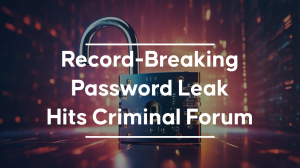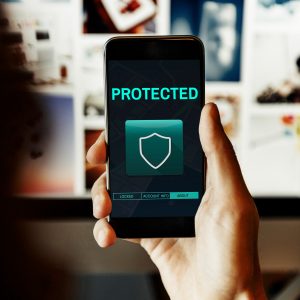
Security experts have uncovered what appears to be the largest password leak ever, with around 10 billion unique passwords exposed. The file, called "rockyou2024.txt," was shared on a major hacking forum by a hacker using the alias "ObamaCare."
The Scope of the Leak
This massive leak didn't stem from a single breach. Instead, it's a collection of passwords from both old and new breaches, which is alarming for everyone. If you reuse passwords across different services, hackers could gain access to your personal and financial data.
The Details Behind RockYou2024
Researchers from Cybernews found the enormous password file on BreachForums, an underground forum. The file contains nearly 10 billion unique passwords in plain text. The leak includes data from an older breach, RockYou2021, which had 8.4 billion passwords. By adding another 1.5 billion passwords from various breaches between 2021 and 2024, the dataset grew by 15%.
The Risks
The RockYou2024 leak is a compilation of real-world passwords, making it a goldmine for hackers. They can use these passwords for credential stuffing attacks, where they try these passwords on various sites to gain unauthorized access. This kind of attack can be very damaging, especially if you use the same password for multiple accounts.
How This Affects You
This leak increases the risk of credential stuffing attacks. Hackers can use passwords from one breach to try to log into other services you use. For example, they might take passwords from a breach involving a telecom company and see if they work on your bank account.
Protecting Yourself
If you think you might be affected, here are some steps to protect yourself:
- Change Your Passwords: Avoid using the same password for multiple sites. Use a password manager to create and store strong, unique passwords for each account.
- Enable Two-Factor Authentication (2FA): Add an extra layer of security. With 2FA, after entering your password, you'll need to provide another piece of information, like a code sent to your phone or generated by an authenticator app.
- Remove Personal Information Online: Use services that help remove your personal information from the internet. Although they can't guarantee complete removal, they can significantly reduce your online footprint.
- Use a VPN: Protect your online activity and data with a VPN. This helps keep your location and browsing history private.
- Monitor Your Accounts: Regularly check your bank and credit card statements for any suspicious activity. Report any unauthorized transactions immediately.

Checking if Your Data is Compromised
You can check if your information has been exposed by visiting haveibeenpwned.com. Enter your email address to see if it's associated with any data breaches. If you receive a notification, take immediate action to secure your accounts.
Additional Security Tips
Consider using services like Incogni to remove your personal information from the internet. Also, using a VPN like ExpressVPN can add an extra layer of protection to your online activities.
By taking these steps, you can safeguard your personal and financial information against the threats posed by this massive password leak.
If your business's information has been compromised, don't hesitate to reach out to us and ask for a Customized IT Optimization Plan: Contact us.



